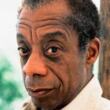The Intuitionist
(Libby/OverDrive eAudiobook)
Available Platforms
Description
More Details
Also in this Series
Published Reviews
Booklist Review
Whitehead's debut novel can claim a literary lineage that includes Orwell, Ellison, Vonnegut, and Pynchon, yet it is resoundingly original. Set in a New York-like metropolis, it tells the tale of Lila Mae Watson, the first black woman elevator inspector. Now this may not sound impressive, but in the tricky universe Whitehead has constructed, elevators are mystical vehicles and the inspectors a priestly lot. But all is not peaceful in the cult of verticality: there is a war going on between two factions, the Empiricists, who work purely on the physical plane, and the Intuitionists, who inspect by sensing, or intuiting, the state of each machine. Watson is an Intuitionist whose faith is shaken to the core by a freak accident that not only jeopardizes her career but, as her attempt to clear her name draws her into a web of intrigue surrounding the enigmatic founder of her sect, puts her very life in danger. The story is mesmerizing, but it is Whitehead's shrewd and sardonic humor and agile explications of the insidiousness of racism and the eternal conflict between the material and the spiritual that make this such a trenchant and accomplished novel. (Reviewed December 1, 1998)0385492995Donna Seaman
Kirkus Book Review
A dizzyingly-high-concept debut of genuine originality, despite its indebtedness to a specific source, ironically echoes and amusingly inverts Ralph Ellison's classic Invisible Man. In a deftly plotted mystery and quest tale that's also a teasing intellectual adventure, Whitehead traces the continuing education of Lila Mae Watson, the first black woman graduate of the Institute for Vertical Transport and thus first of her race and gender to be employed by the Department of Elevator Inspectors. In a ""famous city"" that appears to be a future New York, Lila Mae compiles a perfect safety record working as an ""lntuitionist"" inspector who, through meditation,. ""senses"" the condition of the elevators she's assigned. But after an episode of ""total freefall"" in one of ""her"" elevators leads to an elaborate investigation, Lila Mae is drawn into conflict with one of the Elevator Guild's ""Empiricists,"" those who, unlike Intuitionists, focus their attention on literal mechanical failures. Furthermore, it's an election year for the Guild, pitting lntuitionist candidate Orville Lever against crafty Empiricist Frank Chancre, who has surreptitiously enlisted the muscle of mobster Johnny Shush. Hoping to escape these distractions while proving herself innocent, Lila Mae goes ""underground"" and makes some dangerous discoveries about the ideas and the life of Intuitionism's founder, James Fulton, a visionary known to have been working on a ""black box"" that would revolutionize elevator construction and after the nature of urban life forever. Lila Mae's odyssey involves her further with such mysterious characters as Fulton's former housemaid and lover, her circumspect ""house nigger"" colleague Pompey, a charmer named Natchez, who claims he's Fulton's nephew, and sinister Internal Affairs investigator Bart Arbogast. Whitehead skillfully orchestrates these noirish particulars together with an enormity of technical-mechanical detail and resonant meditations on social and racial issues, bringing all into a many-leveled narrative equally effective as detective story and philosophical novel. Ralph Ellison would be proud. Copyright ©Kirkus Reviews, used with permission.
Booklist Reviews
/*Starred Review*/ Whitehead's debut novel can claim a literary lineage that includes Orwell, Ellison, Vonnegut, and Pynchon, yet it is resoundingly original. Set in a New York^-like metropolis, it tells the tale of Lila Mae Watson, the first black woman elevator inspector. Now this may not sound impressive, but in the tricky universe Whitehead has constructed, elevators are mystical vehicles and the inspectors a priestly lot. But all is not peaceful in the cult of verticality: there is a war going on between two factions, the Empiricists, who work purely on the physical plane, and the Intuitionists, who inspect by sensing, or intuiting, the state of each machine. Watson is an Intuitionist whose faith is shaken to the core by a freak accident that not only jeopardizes her career but, as her attempt to clear her name draws her into a web of intrigue surrounding the enigmatic founder of her sect, puts her very life in danger. The story is mesmerizing, but it is Whitehead's shrewd and sardonic humor and agile explications of the insidiousness of racism and the eternal conflict between the material and the spiritual that make this such a trenchant and accomplished novel. ((Reviewed December 1, 1998)) Copyright 2000 Booklist Reviews
Publishers Weekly Reviews
If you've ever wanted to know your elevator inspector better, Whitehead's meaty and mythic first novel may help you get acquainted. Set in a huge, unnamed city, it hinges on the friction between rival groups of inspectors the Empiricists, who base their appraisals of elevators on careful observation, and the Intuitionists, who know the machines they work with so well that they can sense potential problems simply by standing inside one. When an elevator plummets several stories right after receiving an okay from Lila Mae Watson, the city's first black female Intuitionist elevator inspector, the woman immediately comes under suspicion of a gross error. As accusations cloud the air, she tries to clear her name and finds that her group is not without its scandals. Lily Mae weathers attacks by thugs, political crossfire between municipal factions and a flirtation with romance in a journey towards a plot twist thick with irony and social criticism. In this Gotham-esque sweatbox, every footstep echoes like a nickel hitting the bottom of a penny bank. Whitehead has created a self-contained universe in this novel, complete with its own mythology and history (re-created at length in the course of the narrative), and it is to his credit that he is able to weave in a meditation on race. He has a completely original story to tell, and he tells it well, successfully intertwining multiple plot lines and keeping his reader intrigued from the outset. (Dec.) Copyright 1998 Publishers Weekly Reviews
Reviews from GoodReads
Citations
Whitehead, C., & Fernandez, P. J. (2000). The Intuitionist (Unabridged). Recorded Books, Inc..
Chicago / Turabian - Author Date Citation, 17th Edition (style guide)Whitehead, Colson and Peter Jay Fernandez. 2000. The Intuitionist. Recorded Books, Inc.
Chicago / Turabian - Humanities (Notes and Bibliography) Citation, 17th Edition (style guide)Whitehead, Colson and Peter Jay Fernandez. The Intuitionist Recorded Books, Inc, 2000.
Harvard Citation (style guide)Whitehead, C. and Fernandez, P. J. (2000). The intuitionist. Unabridged Recorded Books, Inc.
MLA Citation, 9th Edition (style guide)Whitehead, Colson, and Peter Jay Fernandez. The Intuitionist Unabridged, Recorded Books, Inc., 2000.
Copy Details
| Collection | Owned | Available | Number of Holds |
|---|---|---|---|
| Libby | 2 | 1 | 0 |



































